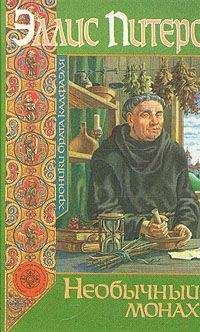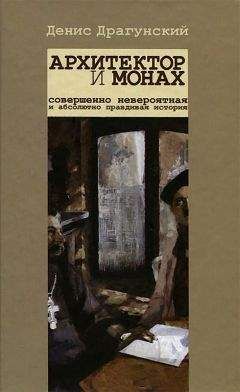Энтони Хоуп - Английский язык с Энтони Хоупом. Узник Зенды / Anthony Hope. The Prisoner Of Zenda
“He can’t stay long from Strelsau, it seems,” I observed, smiling (он, кажется, не может долго находиться /вдали/ от Стрелсо). “Well, we are all glad to see him (ну, мы все рады видеть его). The nearer he is, the better (чем он ближе, тем лучше).”
Well, I braced myself to the task, made no easier by the charming embarrassment with which I was received. How I succeeded in carrying out my programme will appear hereafter.
“You are gaining golden laurels,” she said. “You are like the prince in Shakespeare who was transformed by becoming king. But I’m forgetting you are King, sire.”
“I ask you to speak nothing but what your heart tells you – and to call me nothing but my name.”
She looked at me for a moment.
“Then I’m glad and proud, Rudolf,” said she. “Why, as I told you, your very face is changed.”
I acknowledged the compliment, but I disliked the topic; so I said:
“My brother is back, I hear. He made an excursion, didn’t he?”
“Yes, he is here,” she said, frowning a little.
“He can’t stay long from Strelsau, it seems,” I observed, smiling. “Well, we are all glad to see him. The nearer he is, the better.”
The princess glanced at me with a gleam of amusement in her eyes (принцесса взглянула на меня с веселым блеском в глазах; gleam – проблеск; вспышка /веселья, юмора/; amusement – забава, развлечение).
“Why, cousin (почему, кузен)? Is it that you can (это потому, что вы можете) —?”
“See better what he’s doing? Perhaps (лучше видеть, чем он занимается? возможно),” said I. “And why are you glad (а чему вы радуетесь)?”
“I didn’t say I was glad,” she answered (я не говорила, что радуюсь, – ответила она).
“Some people say so for you (некоторые люди говорят это за вас).”
“There are many insolent people,” she said, with delightful haughtiness (есть много наглецов, – сказала она с очаровательным высокомерием).
“Possibly you mean that I am one (вы, вероятно, имеете в виду и меня: «что я один /из них/»)?”
“Your Majesty could not be,” she said, curtseying in feigned deference (ваше величество не смогли бы быть /таким/, – сказала она, делая реверанс с притворной почтительностью), but adding, mischievously, after a pause: “Unless, that is (но, помолчав: «после паузы», лукаво добавила, – если не…) – ”
“Well, unless what (ну, если не что)?”
“Unless you tell me that I mind a snap of my fingers (если вы не скажете мне, что меня хоть немного волнует; to mind – беспокоиться, тревожиться; snap of fingers – щелчок пальцами) where the Duke of Strelsau is (где находится герцог Стрелсо).”
Really, I wished that I had been the King (мне, право, было жаль, что я не король).
“You don’t care where cousin Michael (вам безразлично, где кузен Михаэль) – ”
“Ah, cousin Michael (ах, кузен Михаэль)! I call him the Duke of Strelsau (я называю его герцогом Стрелсо).”
The princess glanced at me with a gleam of amusement in her eyes.
“Why, cousin? Is it that you can —?”
“See better what he’s doing? Perhaps,” said I. “And why are you glad?”
“I didn’t say I was glad,” she answered.
“Some people say so for you.”
“There are many insolent people,” she said, with delightful haughtiness.
“Possibly you mean that I am one?”
“Your Majesty could not be,” she said, curtseying in feigned deference, but adding, mischievously, after a pause: “Unless, that is – ”
“Well, unless what?”
“Unless you tell me that I mind a snap of my fingers where the Duke of Strelsau is.”
Really, I wished that I had been the King.
“You don’t care where cousin Michael – ”
“Ah, cousin Michael! I call him the Duke of Strelsau.”
“You call him Michael when you meet him (вы называете его Михаэлем, когда встречаетесь с ним)?”
“Yes – by the orders of your father (да, согласно повелению: «приказаниям» вашего отца).”
“I see (понимаю). And now by mine (а теперь согласно моему /повелению/)?”
“If those are your orders (если вам так будет угодно: «если такими будут ваши приказания»).”
“Oh, decidedly (о, несомненно; decidedly – решительно; бесспорно, несомненно)! We must all be pleasant to our dear Michael (мы все должны быть любезны с нашим дорогим Михаэлем).”
“You order me to receive his friends, too, I suppose (вы приказываете мне также принимать его друзей, я полагаю)?”
“The Six (Шестерых)?”
“You call them that, too (вы их тоже так называете)?”
“To be in the fashion, I do (называю, чтобы следовать моде). But I order you to receive no one unless you like (но я приказываю вам не принимать никого, если вам /этого/ не хочется; unless – если не, пока не; to like – нравиться, любить; хотеть /в отриц. предложениях/).”
“Except yourself (за исключением вас)?”
“I pray for myself (я прошу за себя; to pray – молиться; просить). I could not order (я не смог бы приказывать).”
As I spoke, there came a cheer from the street (когда я говорил, с улицы донеслись приветственные возгласы). The princess ran to the window (принцесса подбежала к окну).
“It is he!” she cried (это он, – вскричала она). “It is – the Duke of Strelsau (это герцог Стрелсо)!”
“You call him Michael when you meet him?”
“Yes – by the orders of your father.”
“I see. And now by mine?”
“If those are your orders.”
“Oh, decidedly! We must all be pleasant to our dear Michael.”
“You order me to receive his friends, too, I suppose?”
“The Six?”
“You call them that, too?”
“To be in the fashion, I do. But I order you to receive no one unless you like.”
“Except yourself?”
“I pray for myself. I could not order.”
As I spoke, there came a cheer from the street. The princess ran to the window.
“It is he!” she cried. “It is – the Duke of Strelsau!”
I smiled, but said nothing (я улыбнулся, но ничего не сказал). She returned to her seat (она вернулась на свое место). For a few moments we sat in silence (несколько минут мы сидели молча: «в тишине»). The noise outside subsided (шум снаружи утих), but I heard the tread of feet in the ante-room (но я услыхал звук шагов в передней; tread – походка; звук шагов; feet – мн. ч. от foot – ступня; нога). I began to talk on general subjects (я принялся: «начал» говорить на общие темы). This went on for some minutes (это продолжалось несколько минут). I wondered what had become of Michael (мне было интересно, что случилось с Михаэлем), but it did not seem to be for me to interfere (но, по-видимому, мне не нужно было вмешиваться; to seem – казаться, представляться; to be – быть; как модальный глагол с последующим инфинитивом означает долженствование, возможность, намерение). All at once, to my great surprise, Flavia (вдруг, к моему великому удивлению, Флавия), clasping her hands asked in an agitated voice (всплеснув руками, спросила взволнованным голосом; to clasp hands – стискивать пальцы, складывать руки /в мольбе/; to clasp – застегивать, скреплять; сжимать):
“Are you wise to make him angry (разве с вашей /стороны/ разумно злить его; wise – мудрый; умный, благоразумный)?”
“What? Who? How am I making him angry (что? кого? чем же я его злю)?”
“Why, by keeping him waiting (да ведь тем, что заставляете его ждать).”
“My dear cousin, I don’t want to keep him (дорогая кузина, я не хотел заставлять его) – ”
“Well, then, is he to come in (ну, тогда пусть он войдет)?”
“Of course, if you wish it (конечно, если вы этого хотите).”
She looked at me curiously (она странно посмотрела на меня).
“How funny you are (какой вы чудной; funny – смешной, забавный; странный),” she said. “Of course no one could be announced while I was with you (конечно же, ни о чьем /приходе/ не могли объявить, пока я с вами; to announce – объявлять, извещать; докладывать, объявлять о приходе /посетителя/).”
Here was a charming attribute of royalty (чудесная привилегия королей; charming – очаровательный, прелестный; royalty – королевская власть)!
I smiled, but said nothing. She returned to her seat. For a few moments we sat in silence. The noise outside subsided, but I heard the tread of feet in the ante-room. I began to talk on general subjects. This went on for some minutes. I wondered what had become of Michael, but it did not seem to be for me to interfere. All at once, to my great surprise, Flavia, clasping her hands asked in an agitated voice:
“Are you wise to make him angry?”
“What? Who? How am I making him angry?”
“Why, by keeping him waiting.”
“My dear cousin, I don’t want to keep him – ”
“Well, then, is he to come in?”
“Of course, if you wish it.”
She looked at me curiously.
“How funny you are,” she said. “Of course no one could be announced while I was with you.”
Here was a charming attribute of royalty!
“An excellent etiquette!” I cried (/какой/ превосходный этикет! – воскликнул я). “But I had clean forgotten it (но я начисто забыл о нем); and if I were alone with someone else, couldn’t you be announced (а если бы я был наедине с кем-то еще, о вас /тоже/ не могли бы объявить)?”
“You know as well as I do (вы знаете это так же хорошо, как и я). I could be, because I am of the Blood (обо мне могли бы, потому что я /королевской/ крови)”; and she still looked puzzled (она все еще выглядела озадаченной).
“I never could remember all these silly rules (я никогда не мог запомнить все эти глупые правила),” said I, rather feebly, as I inwardly cursed Fritz for not posting me up (довольно неубедительно произнес я, в душе проклиная Фрица, что /он/ не сообщил мне /об этом/; feebly – слабо, немощно; невыразительно; inwardly – внутри; про себя, в душе; to post up – извещать, давать информацию). “But I’ll repair my fault (но я исправлю свою ошибку; fault – недостаток, дефект; промах, ошибка).”
I jumped up, flung open the door, and advanced into the ante-room (я вскочил, настежь распахнул дверь и направился в приемную). Michael was sitting at a table, a heavy frown on his face (Михаэль сидел за столом с весьма недовольным лицом; frown – сдвинутые, насупленный брови; выражение неодобрения). Everyone else was standing, save that impudent young dog Fritz (все остальные стояли, кроме нахального молодца Фрица; dog – собака, пес; парень, малый), who was lounging easily in an armchair, and flirting with the Countess Helga (который раскованно: «свободно» развалился в кресле и флиртовал с графиней Хельгой). He leapt up as I entered, with a deferential alacrity (когда я вошел, он вскочил с почтительной готовностью) that lent point to his former nonchalance (которая резко отличалась от его предыдущей беспечности; to lend – давать взаймы, одалживать на время; давать, предоставлять; point – пункт, момент; отличительная черта). I had no difficulty in understanding (мне не трудно было понять: «я не имел трудностей в понимании») that the duke might not like young Fritz (что герцог не жалует: «не любит» юного Фрица).
“An excellent etiquette!” I cried. “But I had clean forgotten it; and if I were alone with someone else, couldn’t you be announced?”




